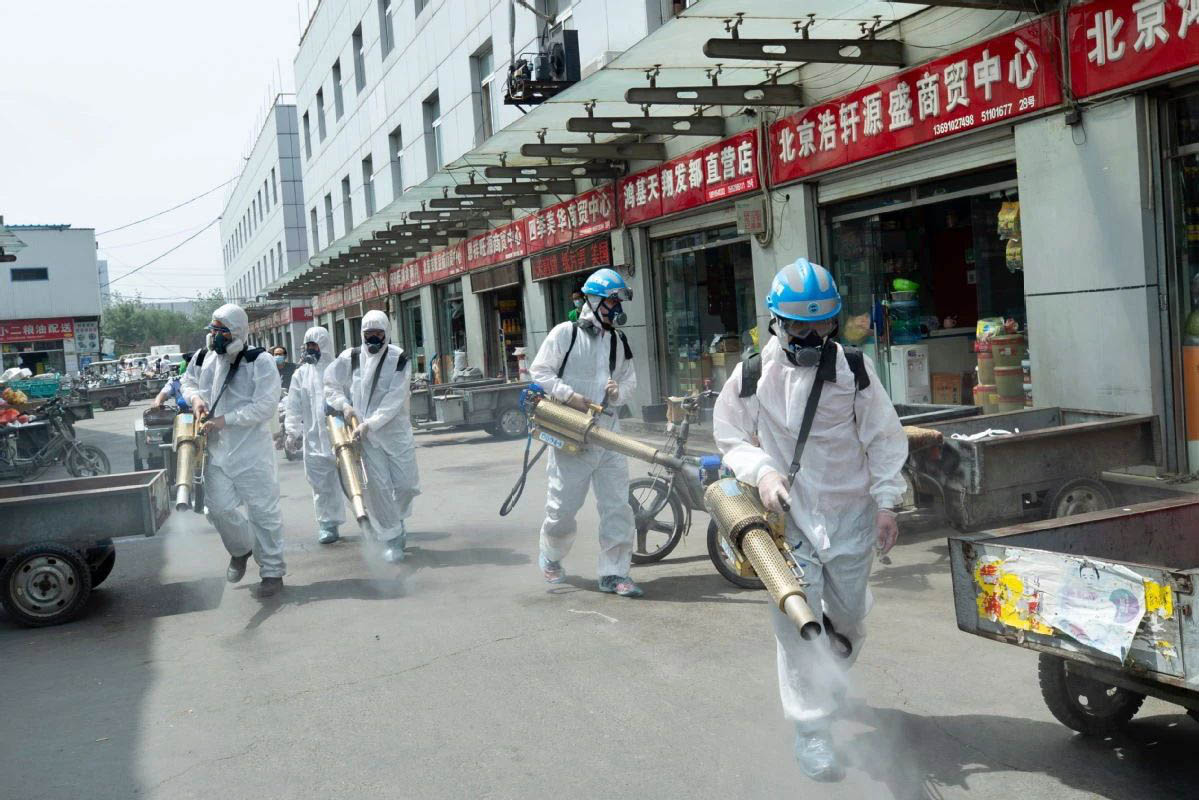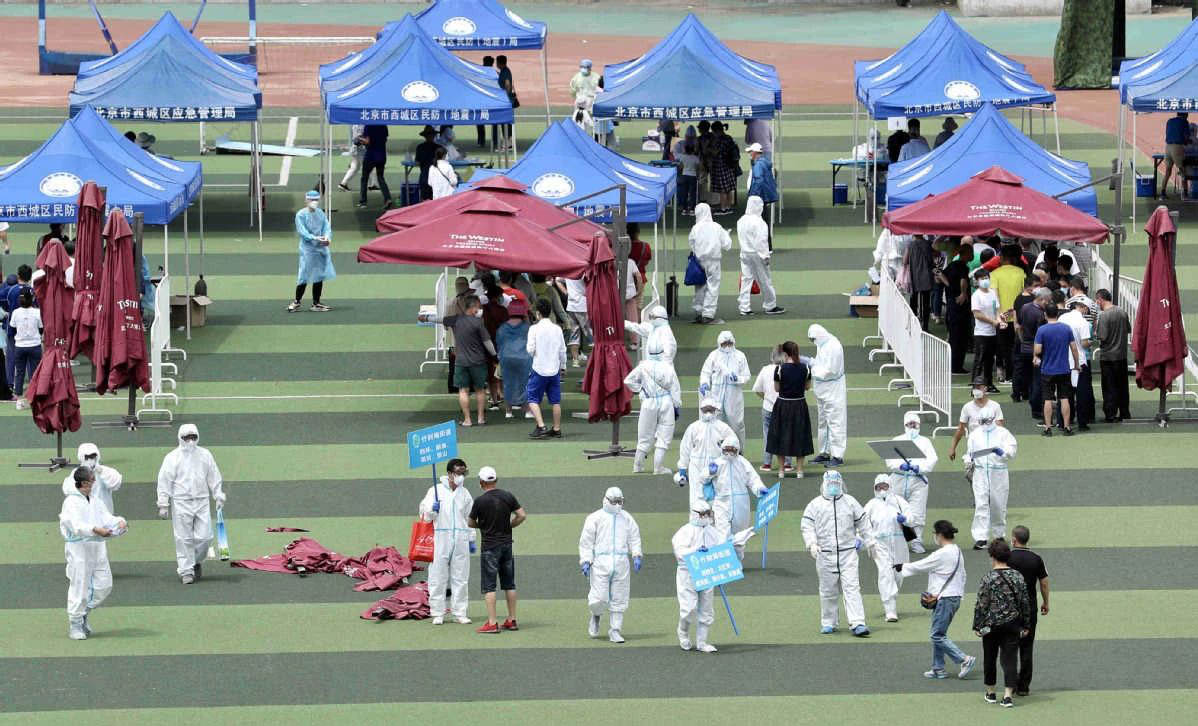Although neither the daily increment nor the total number of cases in Beijing is high compared with outbreaks elsewhere, considering the Chinese capital had not seen any new novel coronavirus infections for nearly two months before Thursday, it is fair to say the city is now in a critical fight against the reemergence of the virus.
At a news briefing on Tuesday, another 27 people were confirmed infected with the virus in Beijing, raising the total number of existing infection cases to 106 in the capital.

▲ Photo by Zou Hong/China Daily
With all of them associated with a huge wholesale food market, through which a large proportion of the city's fresh food used to pass before it was shut down on Saturday, it is clear the transmission chains could extend throughout the city.
Which is why about 100,000 community-level civil servants and workers in 7,120 residential communities and villages in the city have been mobilized to conduct household-based screening to identify anybody who may be infected.
Over the 48 hours since the first case was reported on Thursday, thanks to the grassroots network weaved by the community staff, not only have the nearly 30,000 residents of 11 neighborhoods adjacent to the market been located, quarantined and undergone nucleic acid tests, but so too have the people who were working in or who visited the market since May 30 — about 200,000.

▲ Photo by Zou Hong/China Daily
Apart from the impressive swiftness and decisiveness demonstrated by the municipal government, the precision of the control measures is particularly noteworthy as it means that not only have limited resources been concentrated on the most worthwhile points, but also that the control measures' influence on economic and social operations in the capital have been minimized.
The well-targeted and concrete measures carried out by the grassroots staff constitute the foundation for that crucial precision.
It is also good to see many other local governments have acted accordingly to trace down the people visiting their jurisdictions since May 30 and those they have been in close contact with.

▲ Photo by Zou Hong/China Daily
Since all available signs indicate the world will have to coexist with the virus for a while, that kind of precision and inter-regional collaboration must be maintained in pandemic control work in the foreseeable future to try to strike a dynamic balance between pandemic control and economic recovery.
And to make that happen requires sufficient supplies of essential medical goods, authorities' adept use of big data, the strong execution powers of the public health emergency response mechanism, and the cooperation of residents.
There are no onlookers in this war. Everyone has to play their part in nipping the risks of this outbreak, and any future ones, in the bud by breaking the transmission chains for the virus as quickly as possible.
From:Chinadaily


